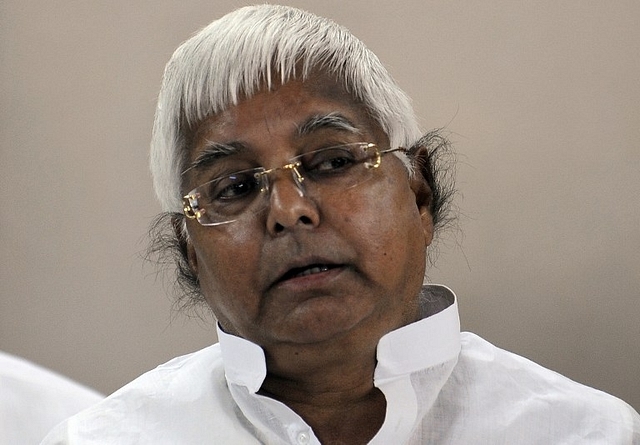
Indian Elections Are Like Indian Films—Mostly Devoid Of Logic
Do we know why the Indian voter votes the way he does?
Vivek Dehijia had a good weekend column in MINT on whether Indian voters cared for economic growth. He had reviewed several articles and papers on the topic. Good article to go through. After a comprehensive review of the literature, his conclusion was that there is no discernible pattern to their voting. I agree.
He does tease out an encouraging conclusion that economic reforms do not have to be necessarily electorally hurtful, either, if not helpful. Fair point. Not sure politicians would take serious note of it, though. Most of them seem to believe, still wrongly, that populism pays and if reforms could hurt, why bother?
On their part, with all due homage to democracy, voters do not really know or care about whom and what they are voting for and why. When the voting forms an accidental pattern, pundits go berserk in fitting outcome to their priors. I said the same thing in my MINT column some time ago:
The record of Indian voters reflecting on their own choices is not very good either. They have taken to heart the Oscar Wilde message that only the unimaginative are consistent. Indians are nothing if not imaginative. To a large extent, Indian elections are like Indian films—mostly devoid of logic. For the most part, producers do not know what succeeds and consumers do not know what they want. There are only occasional rewards for sanity and good sense. Therefore, it is logical not to waste time on introspection. Who knows what the message is? Introspection is hard work and better avoided.
Vivek Dehijia had cited the work of his colleague, Praveen Chakravarty, in the IDFC Institute in his article. Praveen is my friend too and he has been doing non-partisan work on these matters and has been trying to let data dictate conclusions than have things the other way around.
This morning, I read an article by Praveen Chakravarty on whether voters distinguish between Parliament and Assembly elections and choose differently. His headline conclusion is that they do not. His deeper conclusion is somewhat different:
We also note that when assembly elections are held six months before or after the national election, voters chose the same party in only 61% of the cases, down from 77% when elections were simultaneous. When the state elections were held beyond six months of the national election, the chances of voters voting for the same party drop even further. The closer the elections are for the centre and state, the more likely voters are to vote for the same party in both. The farther they are, the less likely. There could be various reasons, primarily despondency with their last electoral choice, that drive voters to vote differently the next time. But the inference that voters deliberately vote differently for the centre and state is a bit trite.
Up to the point where he writes, ‘There could be various reasons’, he was letting data speak. What follows after that are his surmises or hypotheses. Nothing wrong with that. It is, after all, a ‘Opinion’ piece. But, readers should be careful to note where data interpretation ends and where opinion begins.
The honest answer is that we do not know why voters choose differently when the gap between the two elections (Parliament & Assembly) widens. We recall at least two instances from the Eighties when voters chose differently for Parliament and Assembly elections. Again, I am not saying that voters deliberately made a distinction or not. That is up to you, dear reader.
In the 1980 Parliamentary elections, in Tamil Nadu, Dravidar Munnetra Kazhagam (DMK) allied with Ms. Indira Gandhi’s Congress Party and I think the combine won at least 36 out of the 39 Parliamentary seats in Tamil Nadu. DMK’s Karunanidhi thought that he would win the Assembly elections that followed rather easily. He did not. The public voted M.G. Ramachandran’s AIADMK to office for the State, with a clear majority. His party won 129 out of the 234 seats on offer. DMK won only 37 seats and the Congress won 31 seats.
The second instance was in 1985. In 1984, Rajiv Gandhi’s Congress Party swept the national Parliamentary elections. In Karnataka, Ramakrishna Hegde’s Janata Party lost heavily. The Congress Party won 24 seats and Janata Party won only 4 seats.
Mr. Hegde offered to resign from his Chief Ministership and Rajiv Gandhi told him that Assembly and Parliamentary Poll outcomes were different. Since the previous Assembly election was held in 1983, I presume that Mr. Hegde chose to recommend to the Governor to dissolve the Assembly and call for fresh elections. Smart move, as it turned out.
The Congress won only 65 of the 224 Assembly Seats. Janata Party – Mr. Hegde’s party – won 139 seats. In 1983, Hegde’s Janata Party had won only 95 seats.
Perhaps, they are no longer relevant since they happened more than three decades ago and perhaps they are. We simply do not know. That, ladies and gentlemen, is true of many things happening around us. If only leaders, followers and commentators internalise this simple fact of life.